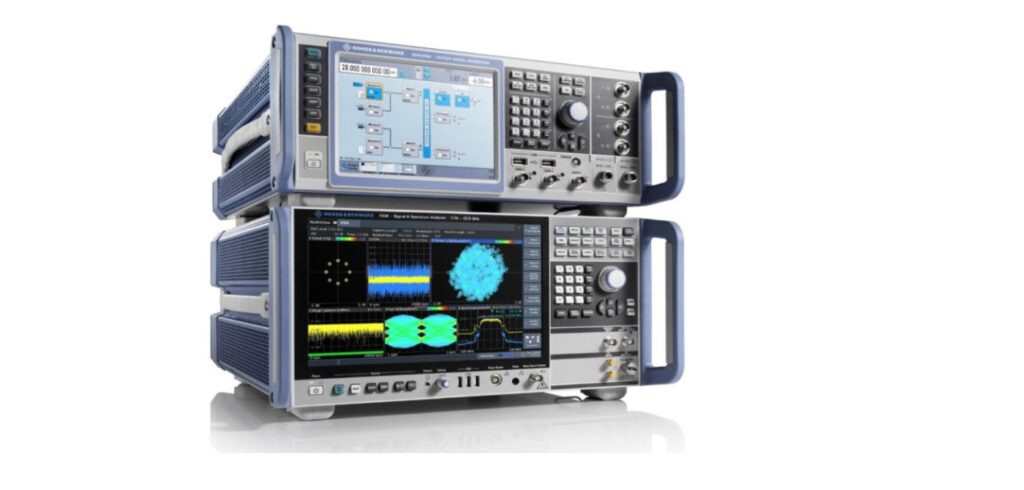Rohde & Schwarz has upgraded some of its signal generation and analysis testing apparatus to account for the latest 5G NR Release 17. Software options for the R&S SMW200A vector signal generator and R&S FSW signal analyzers have been upgraded to fulfil the exacting requirements of this latest 5G specification. The R&S FSVA3000 signal and spectrum analyzer and R&S SMM100A vector signal generator also handle 5G NR Release 17.
Delivering faster and more responsive experiences in mobile broadband communications, 5G New Radio (NR) is the global standard for a unified, more capable 5G wireless air interface. It promises significantly quicker mobile broadband experiences, extending mobile technology to connect and redefine new and emerging industries.
Some key features for Release 17 include ultra-reliable low latency communications (URLLC) for industrial IoT, integrated access and backhaul (IAB), and radio access network slicing for NR. In addition, 3GPP extends the frequency support to 71GHz. This extension requires an adaptation of the physical layer, notably the addition of two new subcarrier spacings (480kHz and 960kHz), and the support of wider signal bandwidths of up to 2GHz.
Requirements for high-quality signal test are embodied in a new enhanced dynamic frontend module for the R&S FSW signal and spectrum analyzer. This makes the solution ideal for evaluating any high-end communication components or systems, including 5G NR FR2 or IEEE 802.11ay/ad chipsets, amplifiers, user equipment and base stations.
Moreover, a new 67GHz frequency option for the R&S SMW200A vector signal generator allows up to 72GHz in overrange mode. This ensures support of all planned higher frequency 5G bands, as well as the 60GHz WiGig band, and inter-satellite links. Key attributes of the generator include excellent modulation quality and flat frequency response, and four hardware-based levels of phase noise performance equally apply to the new frequency options.


